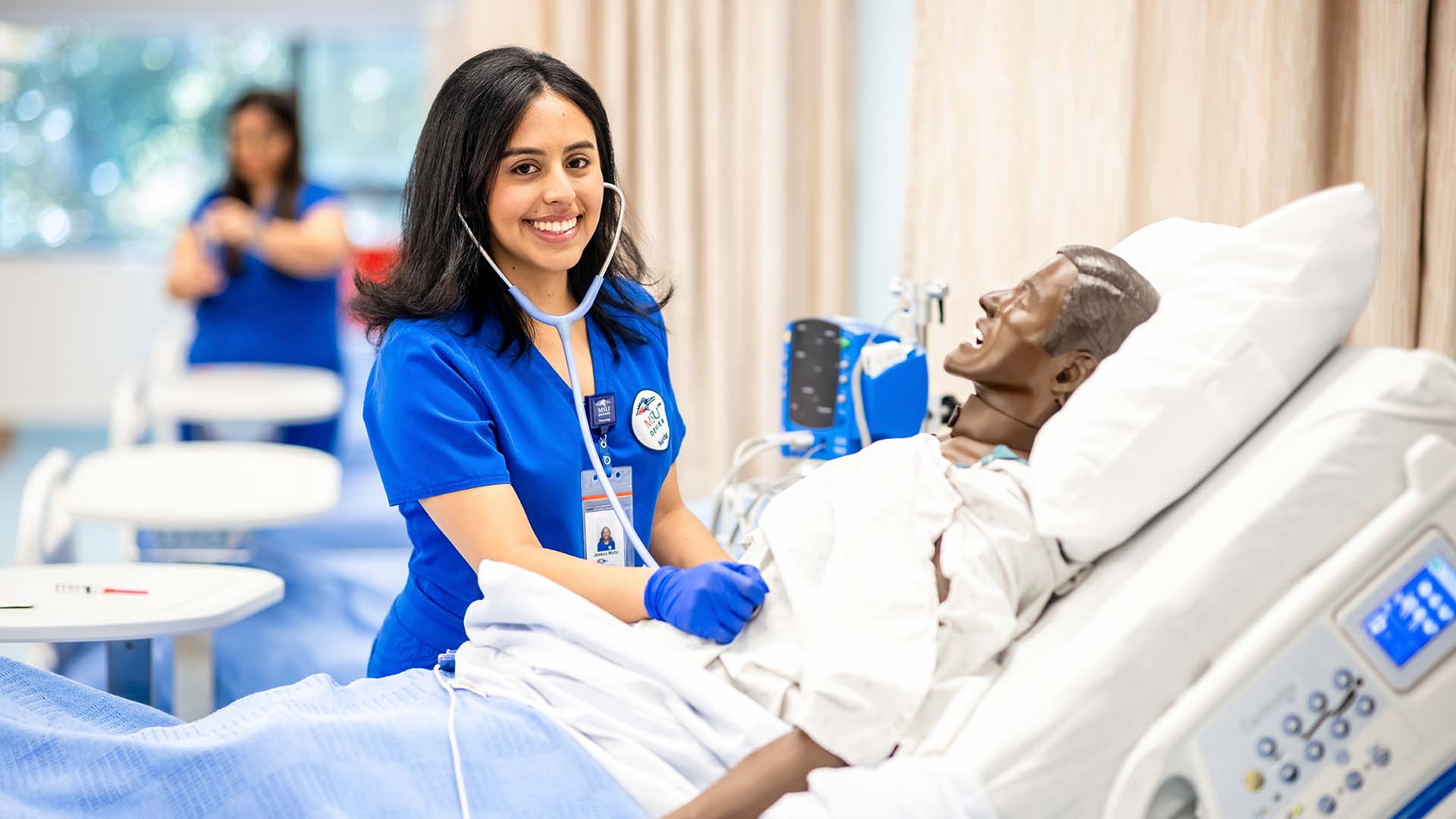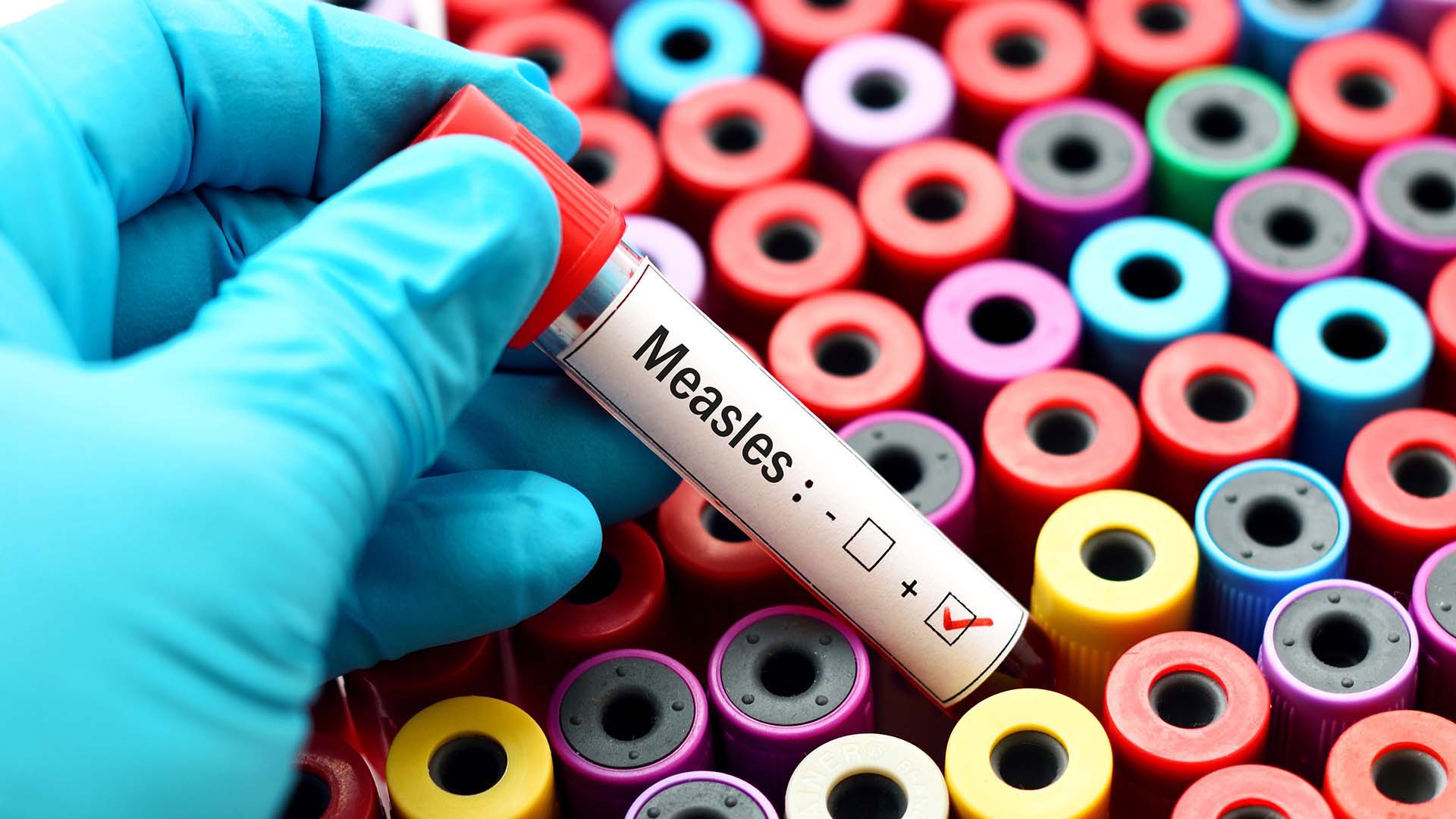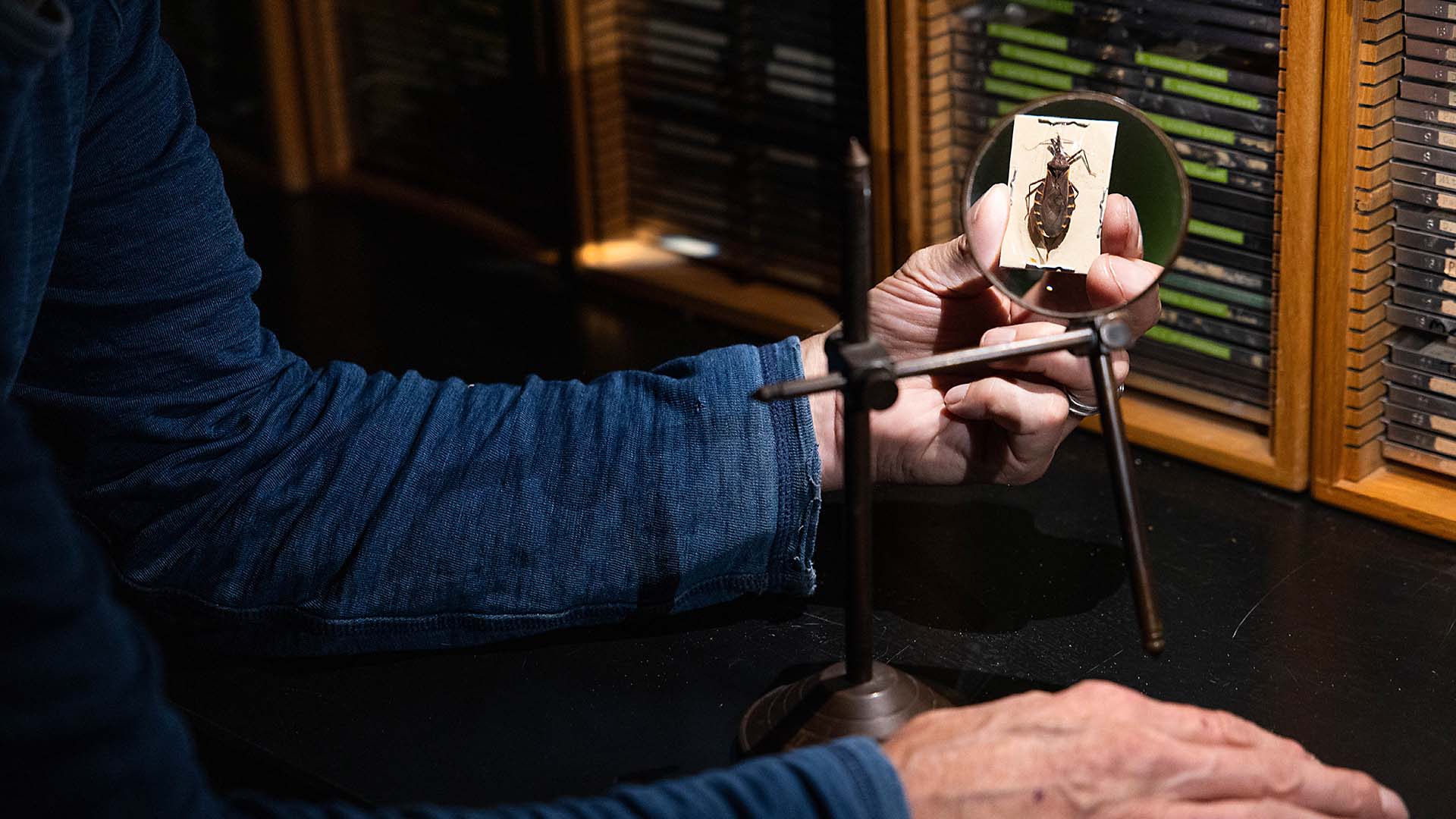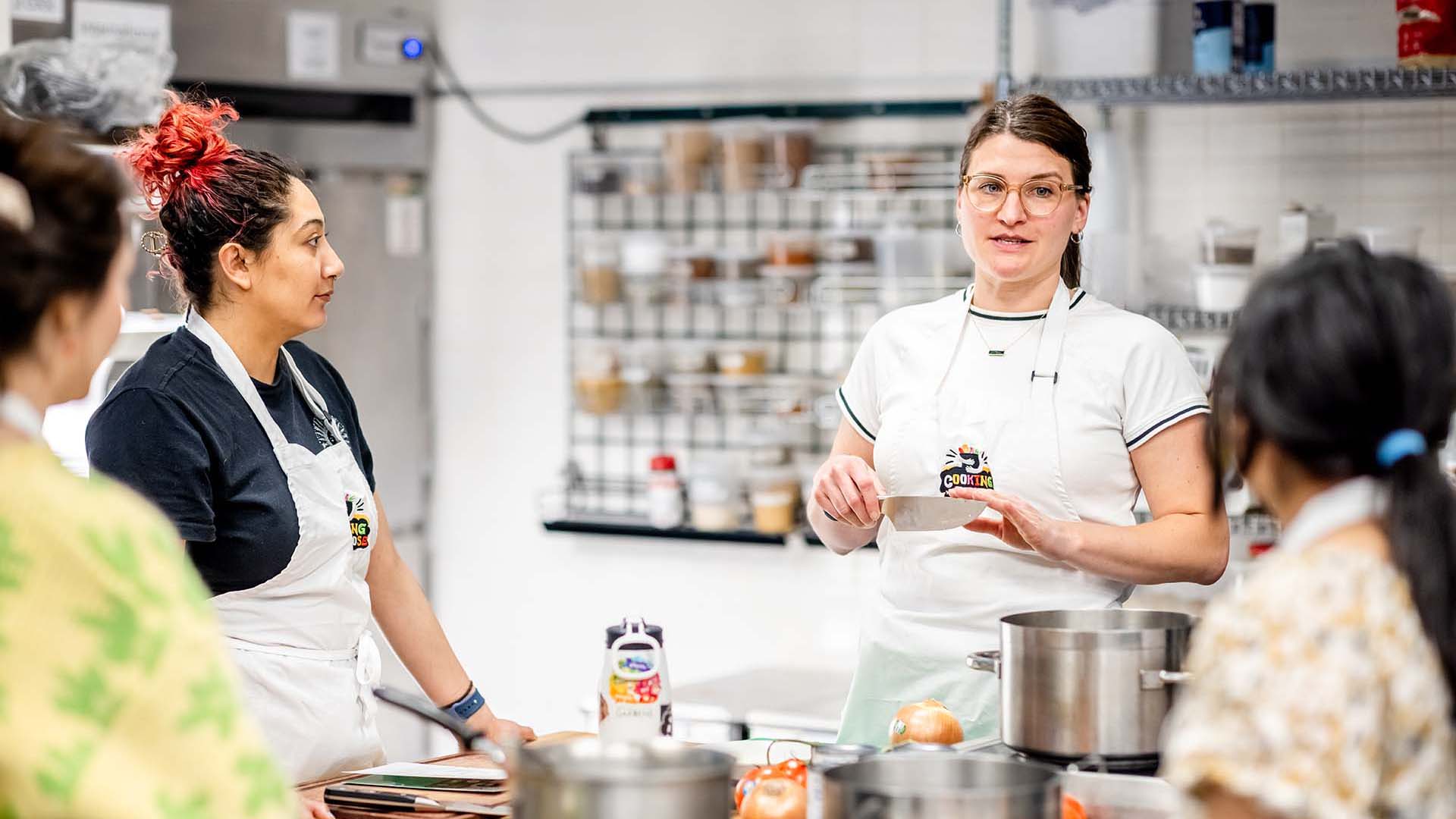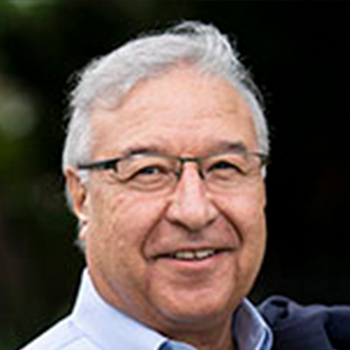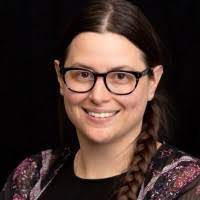Rising to the moment
Whether it’s surviving cancer, studying for a career in social work or crisis management, Ellie Wagley is living proof of what happens when you’re prepared to be at your best every minute.
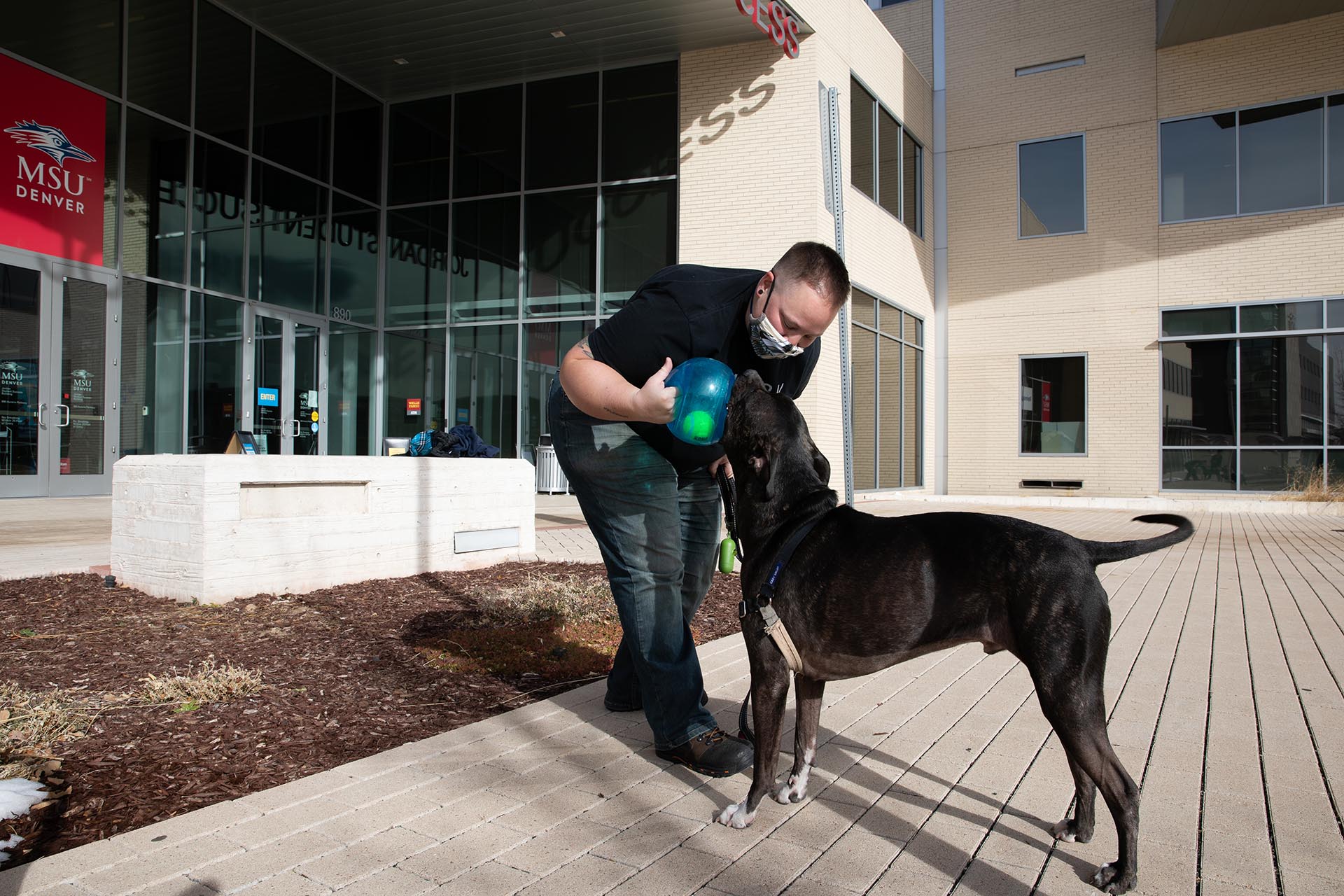
One week after Ellie Wagley underwent a lumpectomy to remove Stage 3 breast cancer, she returned to her job as a retail-store security officer. Not long thereafter, she found a man passed out in the bathroom with a needle in his hand.
An ambulance dispatcher told Wagley and her supervisor that help was on the way and to lie the man face-up on the floor. But Wagley, a former Army combat medic and a senior in social work at Metropolitan State University of Denver, knew that was the wrong call.
“If we put him on his back, he’s going to die,” Wagley recalled telling her supervisor, who insisted they follow the dispatcher’s orders.
In fact, the man was dead for almost 90 seconds; his tongue had rolled back in his throat, blocking his airway, and he had no pulse.
Then, Wagley’s military training took over. After the standard head-tilt-chin-lift CPR procedure didn’t work, she dislocated the man’s jaw and showed her supervisor how to hold his head while she began chest compressions.
By the time the paramedics arrived and loaded the man into an ambulance, he was talking – as much as one can with a dislocated jaw. It was a small price to pay for living to see the next day.
“Those crisis-management situations are where I end up being my best, and to be able to employ what I know in that moment is invaluable,” Wagley said. “I was able to save a dude’s life, you know?”
Turns out, saving lives is Wagley’s calling. At her internship with Brent’s Place in Aurora, she’s working with short- and long-term oncology patients to help provide a safe place for those who are receiving bone-marrow transplants and dealing with various types of cancer. The facility’s primary residents are adolescents and young adults, the demographic she hopes to work with.
“Agewise, that’s the most underserved population in cancer care,” Wagley said. “When you’re 18 to 40, there are a lot of life changes you’re going through – you’re in school, launching a career, thinking about having a family or buying a house.
“That gets overlooked in a lot of oncology because the purpose is to get (the cancer) out and worry about everything else later. The result is a whole lot of life can fall through the cracks, which is detrimental to people’s health as well.”
That whole-person, comprehensive approach to health care is echoed in MSU Denver’s interdisciplinary Health Institute. The 10-department collaboration, which includes Wagley’s social-work studies and the Student Board of Health Ambassadors she served on, is dedicated to meeting Colorado’s growing health-workforce needs, addressing gaps in access to care in underserved communities.
A reckoning with yourself
Wagley’s decision to pursue a career in social work was an abrupt shift after a period of forced introspection. After the Army, she had taken work in paramilitary and armed-security roles, but that all changed June 11, 2015, when she was diagnosed with Stage 3 invasive ductal carcinoma, or breast cancer.
Following her lumpectomy, the chemotherapy and radiation treatment (along with a full hysterectomy and ovary removal) left her laid up in bed, unable to read or focus on anything due to “chemo brain.”
“I had to stare at the ceiling for about five months and figure out who I was,” Wagley said. “I had to have a reckoning with myself and realized I did not like the trajectory I was on.
“That’s when I decided to give social work a shot, and it couldn’t have fit me better.”

Her recovery got a big boost when a neighbor and fellow veteran gave Wagley a pit bull terrier after their daughter’s dog gave birth to a litter of puppies. The neighbor agreed to give Wagley the dog on the condition she would train him.
Wagley named the dog Banjo, and he became a service dog, learning how to help with household tasks and provide relief from nightmares and anxiety attacks. Banjo has been an invaluable “best bud,” she said.
Then, in a cruel twist of fate, Banjo himself was diagnosed in August with Stage 3 canine lymphoma – a rarity for a dog only 4 years old. And though Wagley described the initial prognosis as gut-wrenching, it has also brought with it a shared experience that deepened their bond; the two of them are even on several of the same medications.
As reported by 9News, Banjo is part of a clinical trial through Colorado State University and has good and bad days, responding well to initial treatments but also facing setbacks requiring hospitalization.
It’s an up-and-down path all too familiar to Wagley. The future social worker will celebrate five years with no evidence of disease this spring – officially in remission – and continue on a career path she hopes will lead to the Peace Corps. Every day is a reminder to do the most good possible in the moment you’re in, she said, whether that’s saving someone’s life in a bathroom stall or simply playing a game of fetch.
“As a combat medic in Afghanistan, you don’t really have what you need in the field, so you make do,” she said. “Dogs live minute-to-minute. … (Banjo’s) going through cancer, but he still finds time to be happy – and all it takes is giving him his ball.
“There’s really something about finding that kind of unconditional love.”

